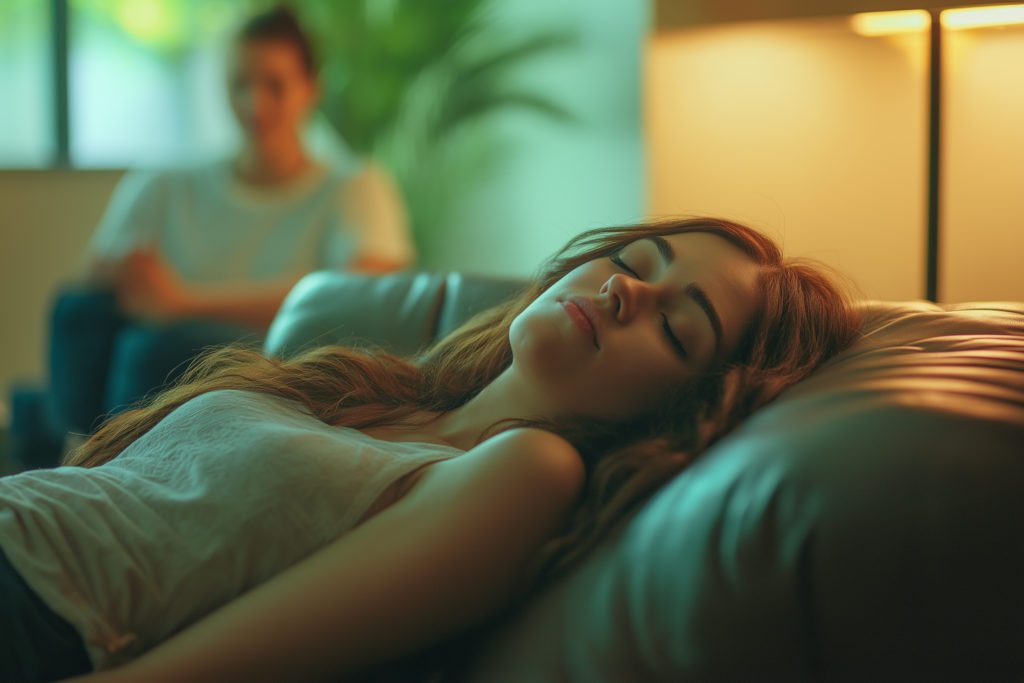
Bipolar Disorder and Circadian Rhythms: Aligning Sleep for Better Health
Struggling with sleep due to bipolar disorder? Read on to discover the connection between this disorder and your circadian rhythm.

If you have bipolar disorder, you may have noticed that your circadian rhythms are not the same as others. In fact, you might have experienced disruptions to your circadian rhythm that can lead to odd sleep patterns and even exacerbated symptoms. To understand this even more, we’ve compiled some research that can help shed some light on the connection between bipolar disorder and circadian rhythms and how you can take steps to align your sleep for better health.
In this article, we’ll discuss how bipolar disorder impacts sleep and some common sleep disruptions you might encounter with this disorder. We’ll also look at some tips to help you improve your sleep health and circadian rhythm alignment. Before we get into the tips that you can implement in your life, let’s explore how bipolar disorder impacts sleep and why.
How—and Why—Bipolar Disorder Impacts Sleep
According to experts, bipolar disorder can have a direct impact on your sleep in terms of quality, duration, and even consistency. Approximately 10% to 80% of patients with bipolar disorder experience sleep problems, with sleep disturbances being among the most prevalent features of bipolar disorder. However, the stage of bipolar disorder you are experiencing will have an indication of the challenges you might face with sleep.
For example, if you are experiencing a manic state, you are less likely to sleep as much as you usually do because your body simply does not need to rest as much. However, when you get through this stage and enter a depressive episode, you might need more sleep, and you may even sleep multiple hours longer than you usually do.
People also report having trouble falling asleep and staying asleep if they have been diagnosed with bipolar disorder, showing just how difficult it is to get enough quality rest. Evidently, bipolar disorder has a massive impact on sleep and people’s overall health. The issue is, unfortunately, that the less sleep you get, the more likely you are to experience an episode or worse symptoms.
If you have bipolar disorder, there are some common sleep disruptions that you might experience, including insomnia and others, which are essential to touch upon.
Common Sleep Disruptions with Bipolar Disorder
Now that you understand just how and why bipolar disorder impacts sleep, you might be curious about the common sleep disruptions people might experience with bipolar disorder. From insomnia to nightmares to hypersomnia, here are the most common sleep disturbances and what they lead to for those with bipolar disorder:
- Insomnia: According to Gold and Sylvia, bipolar depression is categorized by severe insomnia that patients struggle with. That means that people struggle to get enough sleep, stay asleep at night, and adhere to a regular sleep schedule, worsening their symptoms, their health, and their mental health as well.
- Hypersomnia: Occurring in roughly 38-78% of all bipolar patients, excessive sleepiness is another issue that patients struggle with. If you imagine the restlessness that many of these patients feel during a manic episode, it makes sense that this sort of sleep disturbance is common among those with bipolar disorder!
- Nightmares: An unexpected sleep disturbance that might impact those with bipolar disorder is the presence of vivid dreams or even nightmares or night terrors. These can be horrible experiences for people who may feel unable to escape the vivid negative dreams, but by supporting their health, people can take steps to alleviate these experiences.
- Delayed Sleep Phase Syndrome: Because of the way that bipolar disorder impacts the circadian rhythm, you may find yourself experiencing delayed sleep phase syndrome. This causes you to have an irregular circadian rhythm, which can lead to exhaustion, poor energy, and other concerns.
These are just some of the many sleep disturbances that can occur if you have bipolar disorder. Fortunately, there are some tips and tricks that you can use to improve your health and well-being, as well as your overall quality of sleep and circadian rhythm alignment.
Tips for Improving Circadian Rhythm Alignment with Bipolar Disorder
If you want to make adjustments in your life to further align with your ideal circadian rhythm, it is not difficult, but it will take time. Fortunately, we have found some helpful tips that you can use in your life if you have bipolar disorder. Here are some tips we recommend you try to enjoy better rest at night:
- Maintain a Consistent Sleep Schedule: One thing you should do for your sleep health is to maintain a consistent sleep schedule. With bipolar disorder, it can be hard to get enough rest, but if you’re in bed by the same time every night, you’re more likely to get adequate rest.
- Consider Going to Therapy: For some patients with bipolar disorder, going to therapy can be a truly transformative experience. In these settings, you can discuss your concerns about your disorder, sleep, or anything else that might be preventing you from achieving adequate rest. Social therapy has been shown to help with circadian dysfunction, according to PubMed.
- Use Blue Light Blocking Glasses: According to experts, blue light can disrupt your sleep patterns even without bipolar disorder. With a pair of proper blue light-blocking glasses, you can block out the circadian rhythm disruptors and allow your body to prepare for adequate rest.
While these tips might seem simple, they can help you make changes in your life so you finally experience better sleep and even maybe fewer symptoms due to bipolar disorder!
Maintain Balance and Enjoy Quality Rest with Bipolar Disorder
Bipolar disorder can be challenging to manage, especially with the typical sleep disturbances that you are likely to encounter with this condition. However, now that you understand what you’re likely experiencing or will experience, you can use our tips to improve your overall sleep quality. Check out our website today for more articles on improving your sleep health and managing sleep disturbances.
FAQ
Can sleeping too much be harmful for individuals with bipolar disorder?
Yes, oversleeping (hypersomnia) can lead to grogginess, low energy, and worsened depressive symptoms. While sleep needs may increase during depressive episodes, consistently sleeping too much can reinforce low mood and disrupt daily functioning.
How does light exposure impact circadian rhythm in bipolar disorder?
Light exposure, especially in the morning, can help regulate circadian rhythms and improve mood stability in bipolar disorder. Conversely, excessive exposure to blue light at night can contribute to sleep disturbances. Light therapy is sometimes used as a treatment to reset the sleep-wake cycle.
What role does exercise play in improving sleep for those with bipolar disorder?
Regular physical activity, especially in the morning or early afternoon, can help regulate circadian rhythms, reduce stress, and improve sleep quality. However, intense exercise too close to bedtime may have the opposite effect, making it harder to fall asleep.
Is melatonin supplementation safe for individuals with bipolar disorder?
Melatonin supplements can help regulate sleep, but their use in bipolar disorder should be approached with caution. In some cases, melatonin may trigger mood changes or disrupt the delicate balance of circadian rhythms. It’s best to consult a healthcare provider before use.
Can mindfulness and meditation improve sleep in bipolar disorder?
Yes, mindfulness meditation and relaxation techniques can help reduce anxiety, calm the nervous system, and make it easier to fall and stay asleep. Practicing deep breathing, guided meditation, or progressive muscle relaxation before bed can be beneficial.
How does napping affect bipolar disorder and circadian rhythms?
Short naps (20–30 minutes) can help with fatigue, but long or irregular napping can further disrupt circadian rhythms. People with bipolar disorder may be more sensitive to naps interfering with nighttime sleep, so it’s best to keep naps brief and consistent.

Written by
Marie Soukup
Marie Soukup is a seasoned copywriter, editor, and Integrative Nutrition Health Coach with a certificate from the Institute of Integrative Nutrition (IIN). With years of experience working with brands across diverse industries, Marie is passionate about holistic health and crafting compelling content.
Download Pillow
Get help
Press & News
Legal
Connect
X (Twitter)
Company
Copyright © Neybox Digital Ltd.



